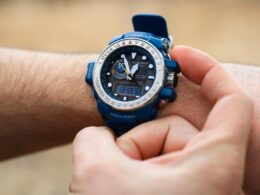The attorney representing NFT artist Ryder Ripps and his co-founder, Jeremy Cahen (known by the pseudonym “Pauly” on X), faced difficulties in convincing a panel of judges to dismiss the lawsuit filed by Bored Ape Yacht Club against his clients.
In an Oct. 17 hearing, three judges from the United States Court of Appeals for the Ninth District appeared skeptical about the arguments presented by Ripps and Cahen’s attorney. The attorney contended that the case should be dismissed on grounds of free speech, asserting that the knock-off Bored Ape NFTs were sold and distributed as a form of protest against alleged hidden anti-Semitic imagery in the original collection.
Ripps and Cahen’s lawyer, Thomas Sprankling, emphasized that Ryder Ripps was selling the NFTs as avant-garde artistic expression that pushed the boundaries of free speech. He argued that Yuga’s lawsuit should be dismissed under a California law designed to prevent intimidating lawsuits, known as strategic lawsuits against public participation (SLAPP).
Sprankling explained that California’s anti-SLAPP statute acts as a preventive measure, going beyond the protections of the First Amendment to ensure people are not threatened or deterred from expressing themselves freely.
The Intersection of Free Speech, Artistic Expression, and NFTs
The hearing showcased the complexities and nuances surrounding the intersection of free speech, artistic expression, and NFTs in the legal realm.
The anti-SLAPP motion contended that Yuga Labs had filed the lawsuit as a response to Ripps’ criticism of Bored Apes on social media, with the intention of silencing him and burdening him with legal costs.
However, the judges on the panel appear skeptical of this argument, focusing their analysis on the secondary sale of the copycat NFTs, not the additional criticisms from Ripps and Cahen. Circuit Judge Morgan Christen expressed doubt, saying, “I’m still not seeing it,” and suggested they were looking for a clearer principle to determine whether this legal action is permissible.
A Satirical Form of Protest or Trademark Infringement?
In January 2022, Ripps began posting on his social media claiming BAYC NFT artwork contained racist caricatures of Black and Asian individuals, and that the project’s logo and branding incorporated references to Nazi symbolism and language.
In mid-May, Ryder Ripps launched RR/BAYC (Ryder Ripps Bored Ape Yacht Club), an NFT project that directly borrowed imagery and names from BAYC as a form of conceptual art protest.
Later In June 2022, Yuga Labs initiated legal proceedings against Ripps and Cahen, accusing them of making millions of dollars through trademark infringement, false advertising, cybersquatting, amongst other charges.
This legal action stemmed from the release of a derivative NFT collection named RR/BAYC. Yuga Labs’ legal team contended that RR/BAYC was intentionally causing confusion among potential BAYC customers, leading them to believe that RR/BAYC had a legitimate association with Yuga Labs.
In response, Ripps has argued that the RR/BAYC project serves as a form of satire and appropriation, aiming to protest and educate people about BAYC and the world of NFTs.
In April, a United States District Court for the Central District of California found that Ripps and Cahen had infringed Yuga Lab’s trademarks with their NFT collection. The court has ruled that Yuga Labs is entitled to an injunction and damages, which will later be determined at trial to assess the scope of damages to be paid to Yuga Labs.
However, the Californian District Court Judge John Walter has already held a bench trial to assess the scope of damages but is yet to announce the conclusion of the case, including the potential damages fee to be paid.
















